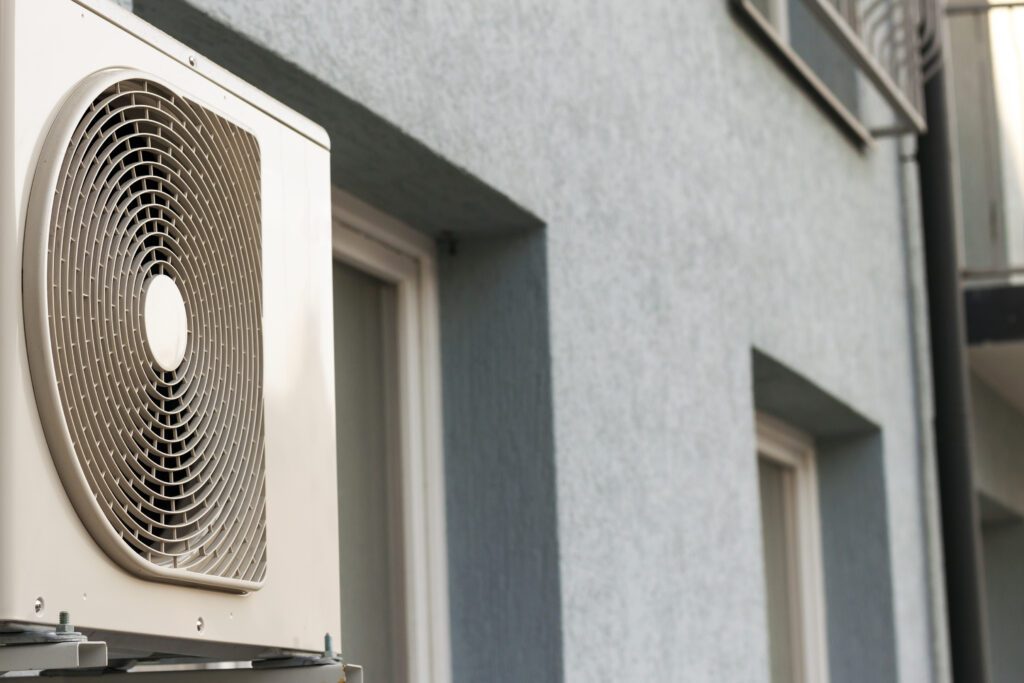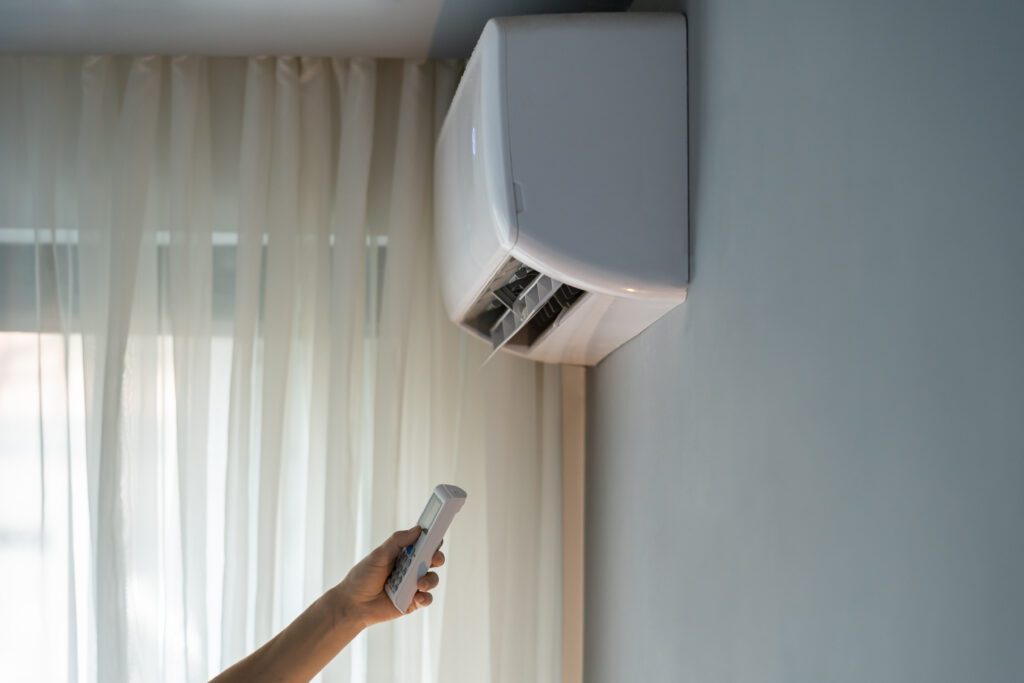When the summer heat is at its peak, the last thing you want is for your air conditioner to start blowing warm air. It can be frustrating and uncomfortable, leaving you wondering what went wrong. Understanding the basics of air conditioning and the common reasons for warm air can help you troubleshoot the issue. In this article, we will explore the different factors that can cause your AC to blow warm air and provide you with some troubleshooting tips.
Understanding the Basics of Air Conditioning
Before we delve into the reasons behind warm air from your AC, it’s important to have a basic understanding of how air conditioning works. Air conditioning systems rely on a cycle of refrigerant to remove heat from indoor air and release it outside. The refrigerant absorbs heat from the indoor air, cools it, and then circulates it back into your living space.
The Role of Refrigerant in Cooling
Refrigerant, a chemical compound, plays a vital role in the cooling process. It transitions from a gas to a liquid and back to a gas as it removes heat from the air. The refrigerant absorbs heat from the indoor air, which causes it to evaporate and become a gas. This gas is then compressed, which increases its temperature. As the compressed gas passes through the condenser coils, it releases heat and reverts back to a liquid state.
How the AC Cycle Works
The air conditioning cycle involves four main components: the compressor, condenser coils, evaporator coils, and expansion valve. The compressor pressurizes the refrigerant, causing it to become hot. The high-pressure refrigerant flows through the condenser coils, releasing heat and turning into a high-pressure liquid. It then flows through the expansion valve, which reduces its pressure, temperature, and converts it into a low-pressure liquid. The low-pressure liquid refrigerant then passes through the evaporator coils, where it absorbs heat from the indoor air and evaporates, turning back into a gas. The process continues in a continuous loop, cooling your indoor space.
Now that we have a solid understanding of the basic principles of air conditioning, let’s explore some additional details about the components involved in this cooling process.
The compressor, often referred to as the heart of the air conditioning system, plays a crucial role in the AC cycle. It is responsible for pressurizing the refrigerant, which increases its temperature. This process is essential for the refrigerant to release heat and cool down, allowing it to absorb more heat from the indoor air.
Next, let’s focus on the condenser coils. These coils are located in the outdoor unit of your air conditioning system and are responsible for releasing the heat absorbed from the indoor air. As the high-pressure refrigerant flows through the condenser coils, it loses heat to the surrounding environment, causing it to revert back to a liquid state.
On the other hand, the evaporator coils are situated in the indoor unit of your AC system. These coils play a crucial role in absorbing heat from the indoor air. As the low-pressure liquid refrigerant passes through the evaporator coils, it evaporates and turns into a gas, absorbing heat from the surrounding air. This process cools down the indoor air before it is circulated back into your living space.
Lastly, we have the expansion valve, which acts as a gateway between the high-pressure and low-pressure sides of the AC system. This valve reduces the pressure and temperature of the refrigerant, allowing it to transition from a high-pressure liquid to a low-pressure liquid. This transition is necessary for the refrigerant to absorb heat efficiently from the indoor air.
By understanding the intricate details of each component involved in the air conditioning cycle, we can better appreciate the complexity and efficiency of these systems. Now, let’s explore the reasons behind warm air from your AC in more detail.
Common Reasons for Warm Air from AC
Now that we have a basic understanding of how air conditioning works, let’s explore some common reasons why your AC may be blowing warm air.
Thermostat Issues
One of the first things you should check is your thermostat settings. Ensure that it is set to cool and that the temperature is lower than the current room temperature. If the thermostat is not functioning properly, it may not be accurately communicating with your AC system, leading to warm air being blown. Consider replacing the batteries and recalibrating the thermostat if necessary.
Blocked or Dirty Condenser Coils
Another common culprit of warm air is dirty or blocked condenser coils. Over time, these coils can accumulate dust, dirt, and debris, hindering the heat transfer process. Ensure that the outdoor unit is free from any obstructions such as plants, leaves, or debris. If the coils are dirty, gently clean them with a soft brush or use a water spray for a more thorough cleaning.
Low Refrigerant Levels
Low refrigerant levels can also result in warm air from your AC. Refrigerant is essential for absorbing heat from the air and cooling your home. If the refrigerant is leaking or has insufficient levels, it can impede the cooling process. Only a certified HVAC technician should handle refrigerant-related issues, so if you suspect low refrigerant levels, it’s best to contact a professional for inspection and refill.
Faulty Compressor
The compressor plays a crucial role in the AC cycle by pressurizing the refrigerant. However, if the compressor is faulty or malfunctioning, it may not adequately circulate the refrigerant, resulting in warm air. A professional technician will need to inspect and diagnose the compressor to determine if it needs repairs or replacement.
In addition to the common reasons mentioned above, there are a few other factors that can contribute to warm air blowing from your AC. One such factor is a clogged air filter. The air filter in your AC system helps trap dust, pollen, and other particles, preventing them from entering your home. However, if the filter becomes clogged, it restricts the airflow, making it harder for your AC to cool the air. Regularly checking and replacing your air filter can help prevent this issue.
Another possible reason for warm air is a malfunctioning fan motor. The fan motor is responsible for circulating the cool air throughout your home. If it is not working properly, it may not be able to push the cool air effectively, resulting in warm air being blown. A professional technician can inspect the fan motor and determine if it needs repair or replacement.
Lastly, inadequate insulation in your home can also contribute to warm air from your AC. Poor insulation allows the cool air to escape and warm air to enter your home, making it harder for your AC to maintain a comfortable temperature. Adding insulation to your walls, attic, and windows can help improve energy efficiency and prevent warm air infiltration.
Troubleshooting Your AC System

Now that you have an idea of the common reasons for warm air, let’s discuss some troubleshooting steps you can take to address the issue.
When troubleshooting your AC system, it’s essential to consider the airflow within your home. Ensure that all vents are open and unobstructed to allow for proper air circulation. Additionally, check the air filters in your HVAC system. Clogged or dirty filters can restrict airflow and impact the cooling efficiency of your AC unit. Regularly changing or cleaning filters can help maintain optimal performance.
Checking the Thermostat
Start by verifying that the thermostat is set to cool and that the temperature is set lower than the current room temperature. Ensure that the thermostat is functioning correctly by replacing the batteries and recalibrating it if needed.
Furthermore, consider the placement of your thermostat. Avoid positioning it near heat sources such as lamps or electronics, as this can lead to inaccurate temperature readings and affect the cooling cycle of your AC system.
Inspecting the Condenser Coils
Inspect the outdoor unit and ensure that the condenser coils are not blocked or dirty. Remove any obstructions such as plants, leaves, or debris. If the coils are dirty, gently clean them with a soft brush or consider using a water spray for a more thorough cleaning.
It’s also important to check the fins on the condenser coils. Bent or damaged fins can obstruct airflow and reduce the efficiency of the cooling process. Use a fin comb to carefully straighten any bent fins and improve the overall performance of your AC unit.
Assessing Refrigerant Levels
If you suspect low refrigerant levels, it’s best to contact a professional HVAC technician. They will be able to safely handle refrigerant-related issues, inspect for leaks, and refill the refrigerant if necessary.
Evaluating the Compressor
If you have checked the thermostat, cleaned the condenser coils, and assessed the refrigerant levels, but the AC is still blowing warm air, the compressor could be the culprit. Call a professional technician for a thorough inspection and to determine if the compressor needs repairs or replacement.
When to Call a Professional


While some AC troubleshooting steps can be performed by homeowners, there are times when it is best to call a professional for assistance.
Recognizing Serious AC Problems
If you notice any unusual sounds, strong odors, or other signs of malfunctioning, it is best to contact an HVAC professional immediately. These could indicate more serious issues that require professional expertise.
The Benefits of Professional AC Repair
Professional HVAC technicians have the knowledge, experience, and tools required to effectively diagnose and repair AC problems. Their expertise ensures that the issues are addressed correctly, preventing further damage and reducing the risk of costly repairs down the line. Additionally, professional maintenance and repairs can help optimize the performance and energy efficiency of your AC system, keeping you comfortable throughout the summer months.
When you call a professional for AC repair, you can expect a thorough examination of your system. They will inspect all components, including the compressor, evaporator coil, condenser coil, and refrigerant levels. By conducting a comprehensive assessment, they can identify any underlying issues that may not be immediately apparent.
Once the problem is diagnosed, the professional technician will provide you with a detailed explanation of the issue and the recommended course of action. They will use their expertise to determine whether a repair or replacement is necessary. In some cases, a simple repair may be all that is needed to restore your AC system to its optimal functioning. However, if the unit is old or has experienced significant damage, they may suggest replacing it with a more energy-efficient model.
Another benefit of hiring a professional for AC repair is the peace of mind it brings. Knowing that a trained and certified technician is handling the repair gives you confidence that the job will be done right. Professionals also offer warranties on their work, providing you with additional protection and assurance.
In conclusion, while it is possible to troubleshoot some AC problems on your own, there are many benefits to calling a professional. Their expertise, tools, and experience ensure that the issues are addressed correctly, preventing further damage and optimizing the performance of your AC system. So, if you encounter any serious or persistent problems with your air conditioning, don’t hesitate to reach out to a professional HVAC technician. Stay cool and comfortable throughout the summer by promptly addressing any concerns with your air conditioning system.



